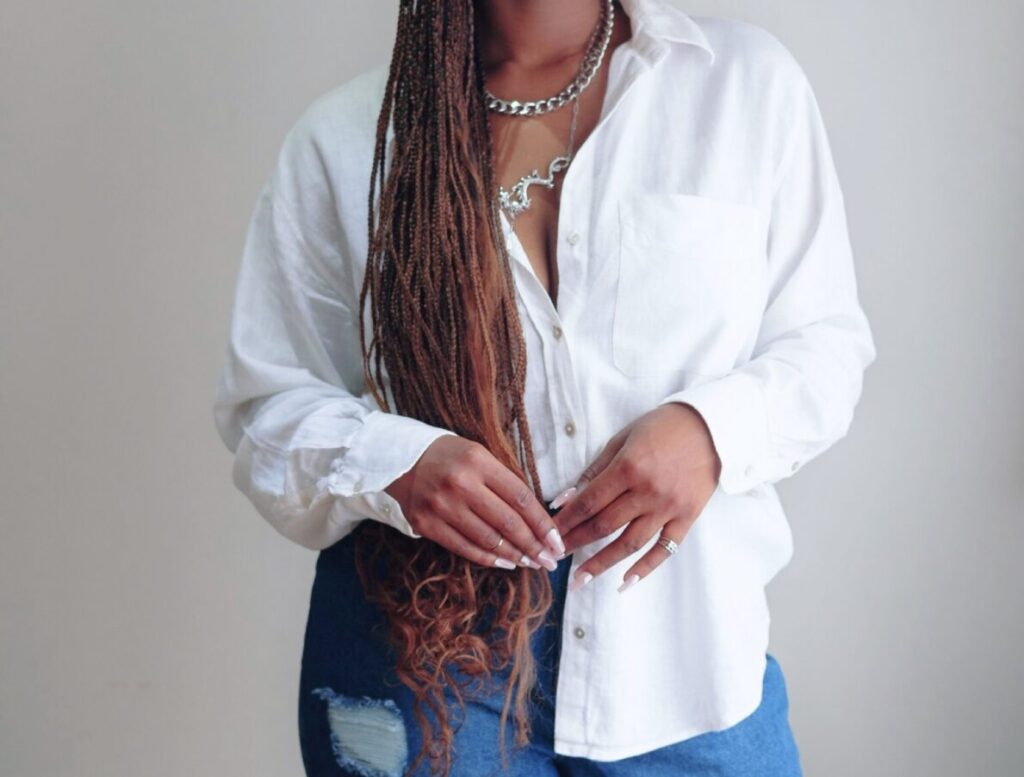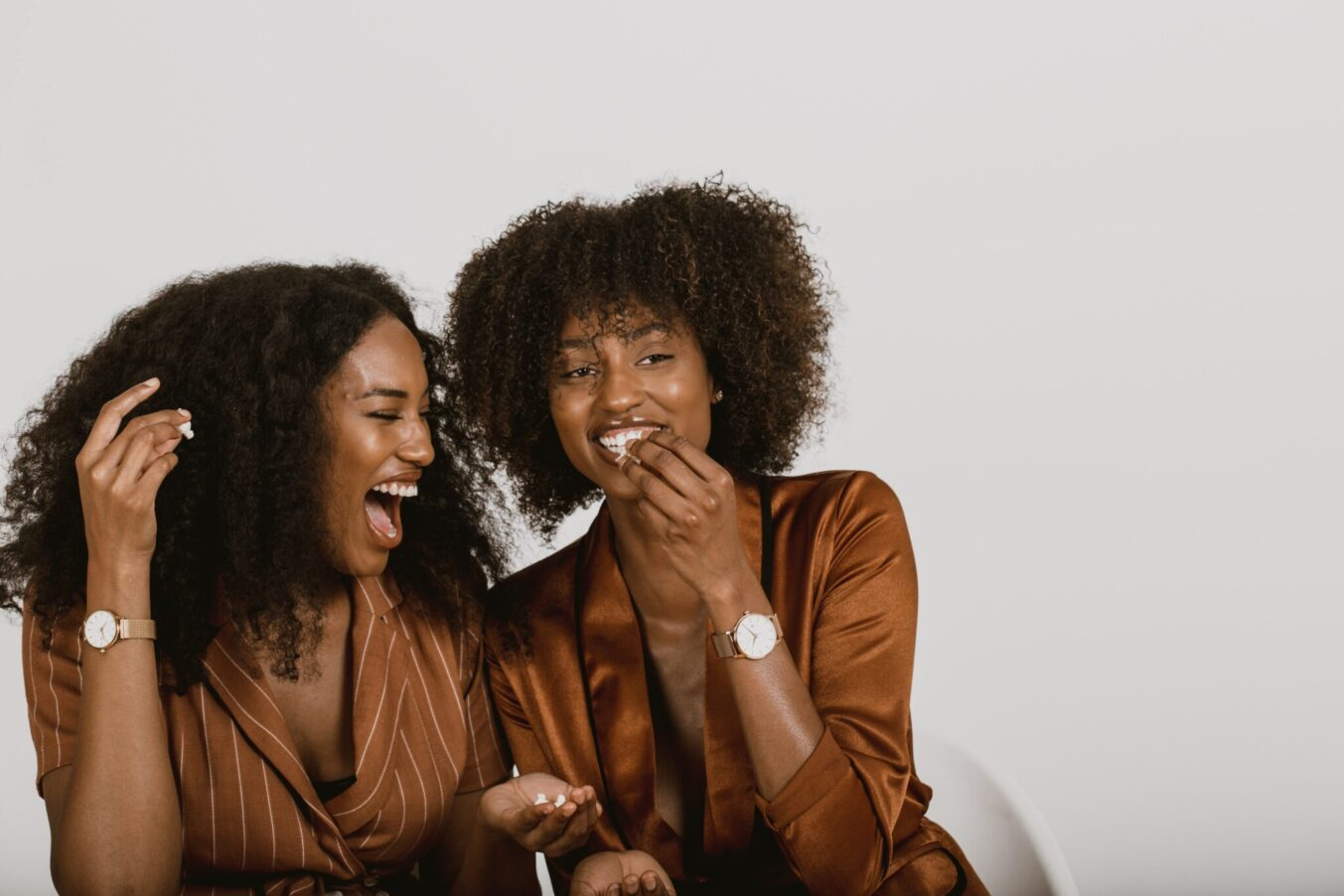Hairstyles are a key part of self-expression, in the same way that makeup and clothing are. The way that we style our hair can be a manifestation of our personalities, even if this is done unconsciously. However, for those of us with curly and coily hair, it’s not as easy to express ourselves as it may seem.
The Burden of Societal Pressures
It should be no surprise that women with curls feel an external and societal pressure to straighten or relax their hair. To some people, for whatever reason, curly hair automatically represents a lack of seriousness, with it often being classed as ‘messy’ and ‘unruly’.
Dr. Marianne LaFrance, a professor of psychology, women’s and gender studies at Yale University has previously shared how:
‘From early on, women are given the message that appearance is massively important, and it can become a marker for their success in life’.
The desire to meet society’s Eurocentric beauty standards creates a barrier in many women’s self-expression, and this is evident across many different countries. In particular, many women in Egypt can be forced at a very early age to straighten their hair, all to align with European standards of beauty. Moreover, the beauty standards for Dominican women can be highly criticizing too. The term “pelo malo” (bad hair) is used towards women with curly and kinky hair.

Targeting Black Women
Black women in particular face a much larger stigma when wearing their hair naturally. More so for Black women, rocking natural curls seems to be a lot more political than it is aesthetic. Not only is natural hair a barrier in self-expression for Black women, but it can also be a barrier in scoring careers or even going to school. The UK school system specifically seems to have a problem with afro-textured hair, as Emma Dabiri (author of ‘Don’t Touch My Hair’) emphasises. Pupils have previously been excluded for fades, locks, braids, natural afros and more.
Fashion is Psychology’s very own founder and editor-in-chief, Shakaila Forbes-Bell, also offers her own perspective.
‘I avoided being natural due to an ingrained belief that my hair wasn’t beautiful and being teased for the tightness of my coils’.
Underlying messages and racial stereotypes presented by society can have a deep impact on self-esteem. Black women are consistently told that they have “nappy” or “bad hair” and begin to internalise self-hatred. In order to reduce these social pressures of adopting a more Eurocentric look, we must target the beliefs adopted at an early age through socialisation.
Forbes-Bell agrees, emphasising how
‘There is a lot of unlearning we have to do when it comes to how we maintain our curls and coils and how we feel about them. For decades Eurocentric beauty norms have been instilled in women worldwide so it’s understandable why straight or relaxed styles have their appeal’.

The Curly Hair Movement
The curly hair movement has represented a crucial shift in attitudes towards embracing curly and natural hair. Although natural hair has been gaining momentum over the last couple of years, the curly hair movement has been supercharged by recent lockdown restrictions. Not only was most of our time spent inside, but professional treatments have not been possible for many months.
According to recent research from L’Oréal, Google searches for “how to make your hair curly” have increased by 50%. Not only are more people with naturally curly and coily hair embracing their style, but there seems to be an overall increased interest in having curly hairstyles.
Editorial director of naturallycurly.com, Alexandra Wilson, states:
‘The natural hair movement really ignited in the 70s when black women were wearing their afros’.
The acceptance of natural seems to have been a long time in the making, with many factors playing a crucial in its rise.
The Social Media Boom
One of the most important factors to consider is social media. Social media has created an accessible community in which people can learn from each other in a way that wasn’t previously possible. A quick search into YouTube can tell you what products and techniques are best for your curl type and texture. Social media is especially impactful for those who are not used to seeing people with similar hair types and textures to them. Being able to witness other women embrace their curls has inspired others to follow suit.
According to one study, Instagram online communities have contributed to making hair types mainstream, and have educated people with a new perception that black women’s hair types are actually beautiful.

Positive Psychological Shifts
Importantly, this new acceptance and appreciation for curly hair has led to a psychological shift in those who are embracing their curls. The curly hair movement can perhaps go hand in hand with the culture of body positivity and acceptance we are experiencing as a society.
For example, one woman has previously shared:
‘Discovering my curls and embracing exactly who I am has granted me many incredible opportunities to share my individuality and promote self-love’.
However, it’s crucial that we keep this positive momentum going, as there is still a long way in how we approach and perceive natural hairstyles.
Forbes-Bell offers an interesting insight regarding the perception of Black women in particular:
‘Instead of being seen as the gold standard, straight hair needs to be viewed as one of many styles that Black women can rock with confidence. There needs to be increased texture representation in all forms of media and there also needs to be more education on the various ways that curls and natural hair can be taken care of – ones that don’t break the bank!’
We must continue to embrace our curly and natural hair, while also reversing problematic Eurocentric beauty norms.



